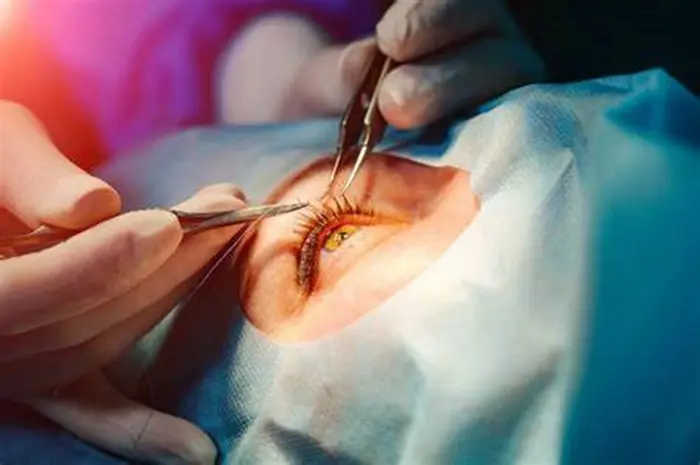Artificial intelligence (AI) is revolutionizing patient care for cataract surgeries in the NHS, offering a more cost-effective, quicker, and efficient service while reducing the strain on NHS staff, as revealed by researchers. An AI system named Dora, developed in Oxford, is at the forefront of this change.
Dora is an automated voice system that calls patients to ask questions, interprets their responses, and determines if a follow-up with a clinician is necessary. A study published in The Lancet’s eClinicalMedicine journal in July found that Dora’s decisions closely aligned with those of a supervising ophthalmologist.
Currently employed by nine hospital trusts, predominantly in southern England, Dora has shown significant promise. Over 200 cataract surgery patients participated in a study where Dora conducted follow-up assessments three weeks post-operation.
Dr. Kanmin Xue, an honorary consultant ophthalmologist and co-principal investigator at Oxford University Hospitals NHS Trust, stated, “The Dora system autonomously calls patients, gathers key information, and identifies those needing further medical assessment.”
Cataract surgery is the UK’s most common surgical procedure, with almost half a million operations annually. The follow-up process is critical yet often constrained by the volume of patients. Dora has alleviated some of this burden. Over the past year, Dora made more than 12,000 calls, each lasting about eight minutes, effectively substituting the work of two full-time nurses.
Frimley Health NHS Trust, which implemented Dora in December 2022, reported freeing up over 530 hours of nursing time. The trust, conducting 5,000 procedures annually, reduced the backlog of calls, cutting the surgery-to-call time from 10 weeks to two weeks within a month of using Dora.
Ron Hart, 73, from Bicester, Oxfordshire, who had cataract surgery at Cherwell Hospital, shared his positive experience with Dora. The system checked on his well-being before and after surgery, eliminating the need for an in-person appointment. “It’s very convenient, there’s no travelling or parking fees, and you don’t have to see someone face-to-face,” Hart remarked.
Most patients were satisfied with the AI follow-up, although some missed the “human element” in cases with complications. Nevertheless, the study highlighted a cost saving of around £35 per patient compared to traditional care methods.
Ufonia, the Oxford University spin-out company behind Dora, is expanding the technology to manage chronic conditions like osteoporosis. Dr. Ernest Lim, Ufonia’s science director, noted that generative AI is enhancing patient care accessibility, from administrative tasks to direct patient engagement, as demonstrated by Dora.
In summary, AI systems like Dora are proving invaluable in the NHS, optimizing cataract patient care, saving costs, and freeing up critical medical staff for more direct patient interactions. As AI technology continues to evolve, its potential applications in healthcare are vast and promising.
Related topics:

